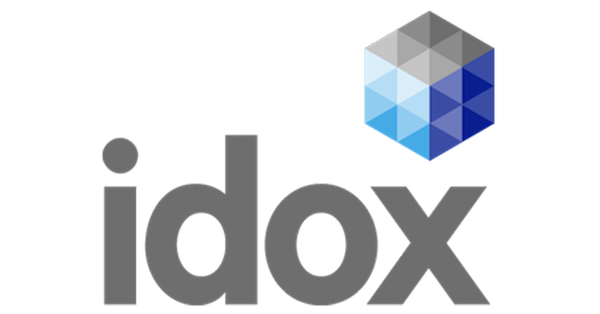Barnsley Council
Idox’s EHC Hub helps Barnsley Council drive digitisation further into its SEND processes, enhancing engagement and collaboration with families
By implementing EHC Hub, the Council has been able to greatly enhance the processes it had in place by delivering improved collaboration, efficiency and transparency, as well as creating visibility and building greater trust with the parents and families it works with.
David Bates
EHCP Compliance and Quality Officer
Barnsley Council
Background:
Two-year strategy to improve outcomes for children and young people with SEND
Barnsley Council is a metropolitan local authority in South Yorkshire serving a population of approximately 228,000. Its special educational needs and disabilities (SEND) services support children and young people with SEND across the community. As part of its two-year strategy, the Council is focusing on reviewing and reconfiguring its services and partnerships to deliver effective SEND reforms and improve outcomes for children and young people with SEND.
Challenge:
Lack of digital portal impacting communication and collaboration with families
Like many councils throughout England, Barnsley Council has seen an increase in demand for statutory needs assessments for children with SEND over the last few years. It currently manages upwards of 2,400 Education and Health Care Plans (EHCP), typically handling 30-40 new requests on average each month. Previously, Barnsley Council used a bespoke digital database solution to manage EHCPs and case management. But this system was ineffective in gathering and sharing information and updates with parents, schools, and professional contributors, which led to some frustration for families. The Council needed an integrated digital SEND management solution with a wider reach that could improve engagement, collaboration and information sharing.
David Bates, EHCP Compliance and Quality Officer at Barnsley Council comments, “Collaboration with parents and schools is integral to the co-production of EHCPs. We needed an efficient tool to help bring together the many aspects of the EHC plan processes, deliver transparency to stakeholders, and ensure families are kept more informed about their child’s case throughout the entire process.”
Solution:
An innovative, digital approach to supporting children and young people with SEND
Having seen the functionality and capabilities of Idox’s EHC Hub, and how it could help the Council to achieve its objectives, the Council began implementation in 2020 ahead of a full deployment in January 2021.
EHC Hub is a specialist digital platform designed in partnership with local authorities, parent carer forums and professionals across education, health, and social care to provide an innovative approach to the way children and young people with SEND are supported. The software transforms and enhances the way local authorities work and how they collaborate with their partners while creating greater efficiencies and productivity for SEND teams.
David continues, “Our existing system didn’t have the parent interface. We always said we needed a portal, and that’s where the Hub came in. The fact that all stakeholders could engage, collaborate and view contributions, and we were able to speed up the production process for writing plans were two key drivers for us. Resource is always an issue, so we have to automate as much as possible. We can’t afford to duplicate processes or key in any more information than we need to – it’s not efficient. EHC Hub removes the need for repetitive administration tasks – sending out emails and statutory notifications, for example, that originally would have been done manually.
“The system is now providing us with data that is enabling us to report as a business unit, which will include submitting our SEN 2 return to the Department of Education.”
As with any new system, getting all stakeholders on board with using a different digital solution was vital. “People sometimes fear ‘new’. They can be sceptical of engaging with new systems and processes. We’ve focused on delivering training to SENCOs in schools, for example, as they submit the majority of new applications and manage the annual reviews. We want to ensure they can see how it works and the benefits it offers so they quickly become confident using it,” explains Mel Dyson, EHCP Coordinator at Barnsley Council. “We’re also organising Hub drop-in sessions for parents and support professionals to accelerate adoption.”
Outcome:
Improved efficiency, transparency and collaboration with stakeholders for enhanced EHCP co-production
Barnsley Council has made great strides in digitising systems and processes to support young people with SEN. According to David, “By implementing EHC Hub, the Council has been able to greatly enhance the processes it had in place by delivering improved collaboration, efficiency and transparency, as well as creating visibility and building greater trust with the parents and families it works with.
“When I started working for the Council, we were doing 10 packs of printed case notes for every case for panel meetings. We had a paper filing system. But now, everything is paperless and digital, and that’s largely thanks to the EHC Hub. All information is in one place with all our requests for contributions from educational, health and social care professionals also coming in directly to EHC Hub.
Mel added, “Our caseworkers benefit from EHC Hub’s easy-to-use visual navigation, and they are getting notifications about statutory deadlines so they can prioritise. And with the Hub automating previously manual processes, such as email notifications, the impact has been transformative.
“Transparency is imperative to the process. Parents can access their child’s record in EHC Hub in real-time, which has helped create better visibility and improved the parent-Council relationship in a way we didn’t have before.”
Talking about recommending EHC Hub to other local authorities, David comments, “We highly recommend other local authorities take a look at EHC Hub. Digitisation is the way to go. And from day one, we knew it would support us in enhancing the Council’s communications with parents and schools and ultimately help us to better meet the needs of children and young people with SEN.”






